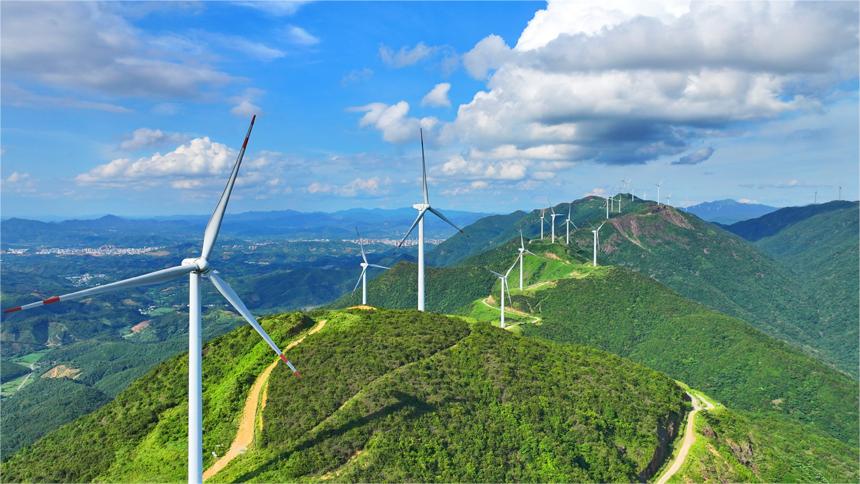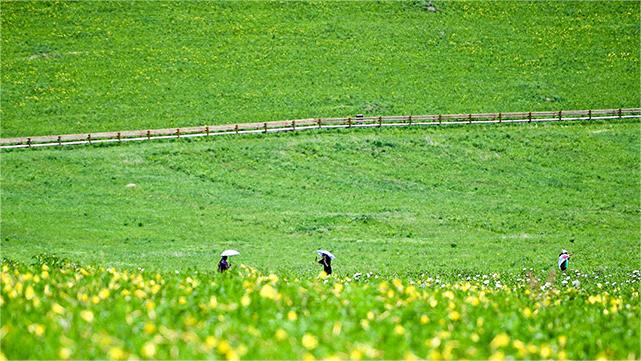EU pork suppliers call for dialogue with China
BEIJING, June 27 (Xinhua) -- Officials and industry insiders in the European Union (EU) called for dialogue with China, after China's Ministry of Commerce launched an anti-dumping investigation into pork imports from the bloc.
The year-long probe was initiated on June 17 at the request of the China Animal Agriculture Association.
EU is China's largest source of pork imports, exporting 3.3 billion U.S. dollars worth of pork and related products to China last year.
EU officials and pork producers have voiced their worries about China's possible anti-dumping duties on the bloc's pork exports, saying such measures could deal "a heavy blow" to the sector.
Ksenija Simovic, senior policy adviser for trade at Copa-Cogeca, Europe's largest farmer lobby, said "The European Commission should ensure that our sector does not bear the burden for disputes involving other sectors."
CHINESE PRODUCERS HURT
In its petition submitted to the Ministry of Commerce, the Chinese association said the prices of EU pork exports showed a significant downward trend from 2020 to 2023, falling 8 percent during the period.
The continuous price decline has forced domestic pork producers to slash their prices by 20-50 percent, which has undermined the interests of the domestic industry, it said.
Pork is the main source of animal protein for Chinese people, accounting for nearly 60 percent of residents' meat consumption.
As the world's largest producer and consumer of pork, China has been expanding imports from the EU, which accounted for 54 percent of the country's total pork imports from 2020 to 2023.
According to the EU's 2023-2027 mid-term budget, the bloc pays 194 billion euros in agricultural subsidies directly to its member states, averaging 38.8 billion euros per year. Of the total, 82 percent could possibly go to high-emission livestock industries, including pig raising and related sectors, said the petition.
"The large amount of subsidies provided by the EU and its related member states has seriously distorted the market environment of fair competition," said a source from the association.
EU SUPPLIERS' WORRIES
Spanish Minister of Agriculture, Fisheries and Food Luis Planas told reporters in Madrid that he hopes and expects that "there will be room for understanding, for negotiation, and to avoid the imposition of tariffs on agricultural and food products."
Spain is the biggest EU pork supplier to China, followed by the Netherlands, Denmark and France. Spain exported 560,488 tonnes of pork products worth 1.2 billion euros to China in 2023, representing 20.3 percent of its total pork exports by volume and 13.7 percent by value, according to Interporc, Spain's pork producers' association.
The anti-dumping measures could impact Europe badly because a large portion of the bloc's pork exports to China are pig ears, noses, feet and offal that are rarely consumed by Europeans.
"It is not easy for the bloc to find an alternative market in a short time," said Zhao Yongsheng, a professor at the University of International Business and Economics.
As many pork producers in the EU rely heavily on export markets, losing the vast Chinese market would result in "significant losses for EU pork traders," said Bai Ming, a researcher with the Chinese Academy of International Trade and Economic Cooperation under the Ministry of Commerce.
CALLS FOR DIALOGUE
The European Commission has proposed to levy provisional additional tariffs of up to 38.1 percent on China-made EVs starting from early July, after initiating an anti-subsidy investigation last year.
"The commission initiated the investigation on its own. But such an ex officio initiation without having received a complaint is more likely to be politically inclined," said Sun Lei, a lawyer and senior partner with Dentons, a law firm.
Industry specialists said that the strong export of China's NEVs is well underpinned by its industrial chain, which has built up its strength under full market competition, not state subsidies.
If the EU could impose additional tariffs on Chinese-made electric cars citing the excuse of unsubstantiated subsidies, it would be justifiable for China to levy taxes on the EU's heavily-subsidized agricultural sector, they said.
Amid strong opposition from China and some EU member economies, the bloc has agreed to start talks with China on the planned imposition of tariffs on Chinese-made electric vehicles.
During a meeting with German Vice Chancellor Robert Habeck on Saturday, Commerce Minister Wang Wentao said China is willing to consider the reasonable concerns of both parties to avoid the escalation of trade frictions in a rational and professional manner.
Mauro Portela Lorenzo, trade officer from the Economic and Commercial Office of Spain in Shanghai, told Xinhua that all Spanish manufacturers involved are keen to collaborate and proactively provide all necessary information in seek of a favorable investigation outcome.
He said he hopes "there will be a positive solution to this investigation."
Zhao believed that the door for trade negotiations between the two parties is open. "China, which has the initiative in terms of market access, technology, industrial chains, and logistics, is willing to accommodate the interests of both sides during negotiations," he said.
Bassas Romeu Gerard, chairman of Salomei, a Spanish manufacturer of sausages, said he hoped China and the EU can lower tariffs to boost bilateral trade.
The company set up a subsidiary in the city of Xuanwei, southwest China's Yunnan Province, in late 2023, and uses pork from both China and abroad as raw material.
"Dialogue and consultations are definitely the right way to solve disputes and avoid a vicious spiral of trade friction escalations," he said.
(Wu Meng and Zhou Rui contributed to the story)
Photos
Related Stories
- China hopes consultations with EU on EVs probe to make positive progress as soon as possible: spokesperson
- China to review anti-dumping measures on toluidine imports from EU: commerce ministry
- China opposes EU listing Chinese firms in sanctions against Russia
- China may take provisional anti-dumping measures against EU pork if necessary: commerce ministry
- Crucial for China, EU to find balance amid tariff tensions
Copyright © 2024 People's Daily Online. All Rights Reserved.









